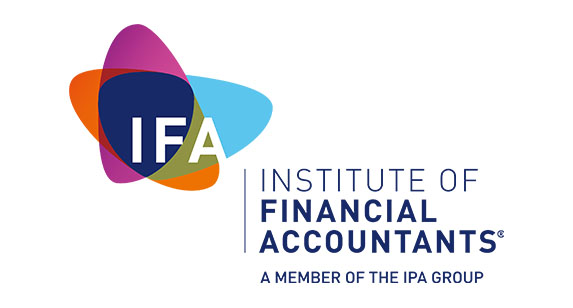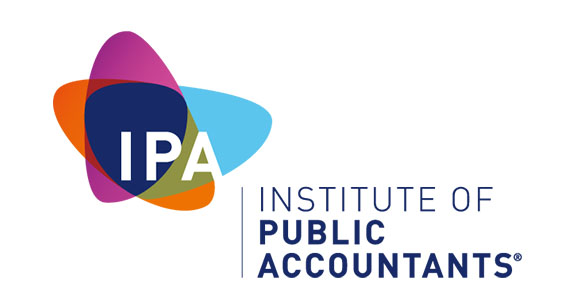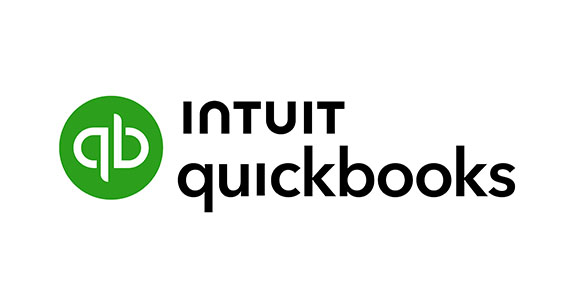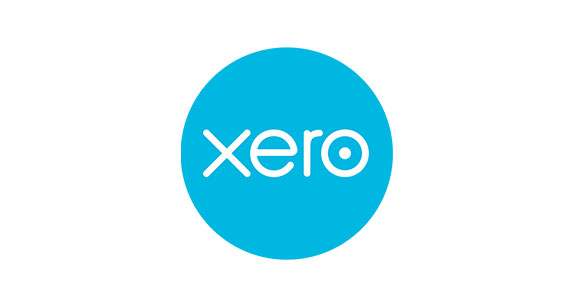Understanding the Basics of Double-Entry Bookkeeping


Divider
Welcome to TMO Financial Service! We're glad you stopped by to learn about one of the cornerstones of modern accounting: double-entry bookkeeping.
Are you tired of spending countless hours managing payroll for your business? Look no further! At TMO Financial Services, we specialise in providing comprehensive payroll solutions tailored to your specific needs. You do not need to have payroll headaches and let our expert team handle it all for you. By giving us the responsibility of payroll, you will make sure that you are focusing on key objectives of your business. We will look after the tedious payroll compliance and whether your payroll is weekly, fortnightly or monthly.
What is Double-Entry Bookkeeping?
Double-entry bookkeeping is a method of recording financial transactions where each transaction affects at least two accounts. This system ensures the accounting equation—Assets = Liabilities + Equity—always remains balanced. In simpler terms, for every transaction, the total debits must equal the total credits. This method provides a more comprehensive view of your financial situation, helping you maintain accurate records and make informed decisions.
The Basic Principles
1. Dual Aspect Concept: Every financial transaction has two aspects—one that receives value and one that gives value. For example, when you purchase office supplies for cash, the office supplies account (asset) increases, and the cash account (asset) decreases.
2. Debits and Credits: In double-entry bookkeeping, debits and credits are used to record transactions. Debits increase asset or expense accounts and decrease liability, revenue, or equity accounts. Credits do the opposite—they decrease asset or expense accounts and increase liability, revenue, or equity accounts.
3. Ledger Accounts: Transactions are recorded in ledger accounts, which are categorized into five main types: assets, liabilities, equity, revenues, and expenses. Each account has a debit and credit side to capture the dual effect of transactions.
Why Double-Entry Bookkeeping?
1. Accuracy: This system reduces errors by cross-checking entries. If debits and credits don’t match, it signals an error, allowing you to correct it before it impacts your financial statements.
2. Comprehensive Financial View: Double-entry bookkeeping provides a complete picture of your financial status, showing not just what you have (assets) but also what you owe (liabilities) and what’s left over (equity).
3. Regulatory Compliance: Many jurisdictions require businesses to use double-entry bookkeeping to comply with legal standards. It ensures transparency and accuracy, essential for audits and financial reporting.
4. Informed Decision-Making: Accurate records allow you to analyze financial data effectively, making it easier to budget, forecast, and strategize for your business’s future.
How to Implement Double-Entry Bookkeeping
1. Set Up Accounts: Start by creating a chart of accounts, a list of all the accounts you’ll use to record transactions. These are typically grouped into the five main categories mentioned earlier.
2. Record Transactions: For each transaction, determine the accounts affected and whether they increase or decrease. Record the debit entry in one account and the credit entry in another. For example, if you take out a loan, you would debit the cash account and credit the loan payable account.
3. Use Accounting Software: Modern accounting software simplifies double-entry bookkeeping by automating entries and calculations. Programs like QuickBooks, Xero, or Sage can help you manage your accounts efficiently.
4. Regular Reconciliation: Periodically reconcile your accounts to ensure they match your bank statements and other financial records. This helps catch errors early and keeps your books accurate.
Example of Double-Entry Bookkeeping
Let’s consider a simple example: Your business purchases a new computer for £1,000 using cash.
1. Identify Accounts: The accounts affected are the Cash account and the Office Equipment account.
2. Determine Increases and Decreases: The Office Equipment account (asset) increases by £1,000, and the Cash account (asset) decreases by £1,000.
3. Record the Transaction:
Debit: Office Equipment £1,000
Credit: Cash £1,000
Here’s how it looks in a ledger:
Date | Account | Debit (£) | Credit (£) |
2024-07-25 | Office Equipment | 1,000 | |
2024-07-25 | Cash | 1,000 |
By recording this transaction, you’ve maintained the balance in your accounting equation, ensuring that your books are accurate.
Common Challenges and Solutions
1.Complex Transactions: Some transactions may affect multiple accounts. Take time to analyze and record each aspect correctly.
2.Errors in Entries: Mistakes can happen. Regularly review and reconcile your accounts to identify and correct errors.
3.Understanding Accounting Terms: Familiarize yourself with basic accounting terms and principles. Consider professional training or hiring a certified accountant to manage your books.
Conclusion
Double-entry bookkeeping is fundamental to maintaining accurate and comprehensive financial records. By understanding its principles and implementing it effectively, you can ensure your business’s financial health and make informed decisions. At TMO Financial Service, we’re here to help you navigate the complexities of accounting, providing the expertise you need to succeed.
Contact us to unlock Your Business Potential
Take control of your financial journey today. Contact us to discover how our tailored solutions can empower your business’s growth and success.





Checkout New List
Explore our Services

BOOK KEEPING
Book keeping is necessary not just to keep track of your company’s financial status, but also to ensure regulatory compliance. Building and maintaining bookkeeping and accounting records takes a lot of time and work. To make it easier for you to keep track of your finances, The Money Orbit offers a wide range of accounting and bookkeeping services.

CIS RETURN
Construction companies that are members of the Construction Industry Scheme can take advantage of our services (CIS). Our specialist team will complete your monthly CIS return, alerting tax you owe HMRC or how much money HMRC may owe you, and ensuring that you pay the correct amount of tax

PAY ROLL
Payroll management is a miserable task for any organisation because it takes a lot of man hours and does not generate revenue. It’s exhausting because rules and regulations are always changing. Why not outsource your payroll processing to The Money Orbit to avoid this laborious task? Simply provide us with the payroll data, and we will provide you with a sustainable, confidential, and accurate payroll processing solution.

VAT RETURN
Completing your VAT returns can be tough and take up a lot of your time. But don’t worry! You can save time and stress by letting us handle it for you. When you trust us with your VAT reporting, you can relax knowing that experts are taking care of everything for you. So why stress over it? Let us handle the hard work while you focus on what matters most to you.

TAX RETURN
Our team of expert accountants is here to assist you with all your tax return needs. Whether you’re dealing with Construction Industry Scheme (CIS), Value Added Tax (VAT), individual, or company accounts, we’ve got you covered. Rest assured, with our professional support, your tax matters will be handled efficiently and accurately.

ANNUAL ACCOUNTS & RETURNS
Some accounting obligations, such as compiling yearly statements, might be delegated to our staff. We collaborate with you to fully comprehend your business scenario, and adapt according to your needs so that we can give you with the exact solution you desire. The profit and loss balance is prepared by our skilled staff based on the individual demands of the customers.
NAVIGATE YOUR BUSINESS JOURNEY WITH EXPERT FINANCIAL GUIDANCE
Certified Accountants
Business &
Financial
Advisors
The Money Orbit is a well-known and expanding company that offers accounting services in Slough and across the UK. Unlike traditional accounting firms, we’re a growing team that offers creative solutions to our clients’ questions, helping them concentrate on their business strategy.
Let’s talk
-
 Sarah J
Sarah JThe Money Orbit has completely transformed my financial outlook. The tools and resources available are incredibly comprehensive and user-friendly. I've gone from feeling overwhelmed by my finances to having a clear and actionable plan for my future. Highly recommend to anyone looking to take control of their money!
Read more -
 Mike R
Mike RAs a small business owner, I needed a reliable financial management solution. The Money Orbit has been a game-changer for my business. Their expert advice and easy-to-use platform have streamlined my finances and boosted my confidence in making financial decisions. It's like having a financial advisor in my pocket!
Read more -
 Emily S
Emily SI was skeptical at first, but The Money Orbit exceeded all my expectations. Their personalized approach and detailed insights into my spending habits have helped me save more money than I ever thought possible. The customer support is also top-notch, always there to help with any questions I have."
Read more -
 David and Anna L.
David and Anna L.The Money Orbit's financial planning tools have been invaluable for my family. We've been able to set realistic savings goals and track our progress effortlessly. The peace of mind we have now is priceless. Thank you, Money Orbit, for helping us achieve our financial goals!
Read more -
 James M
James MI can't say enough good things about The Money Orbit. Their educational content and step-by-step guidance have empowered me to make smarter financial choices. Whether you're new to managing your money or looking to refine your strategy, The Money Orbit is the place to start.
Read more